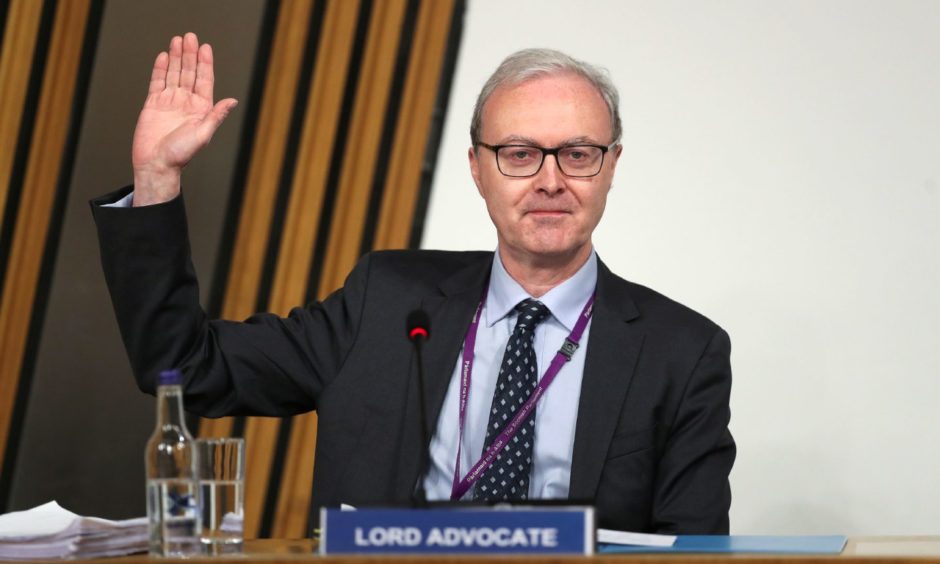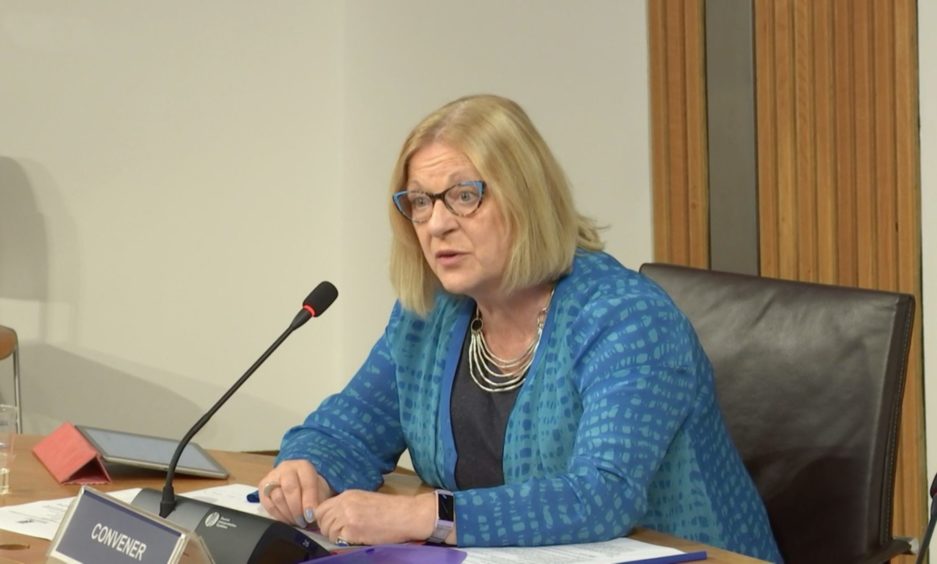Alex Salmond is poised to accuse the Crown Office of an “abuse of legislation” in blocking the publication of key evidence.
The former first minister will allege that Scotland’s Lord Advocate James Wolffe wrongly applied legislation which led to parliament being prevented from publishing evidence relating to emails and government memos from civil servants.
Mr Salmond, in his final submission to the parliamentary inquiry into the Scottish Government’s handling of harassment allegations against him, is expected to “examine in detail” the actions of the Crown Office.
The developments come as a BBC interview was aired with one of the complainers against Mr Salmond who said she had found the Holyrood committee’s investigation “more traumatic” than the High Court trial of the former first minister.
Requests for evidence to be released rejected
Prosecutors have rejected requests to release the evidence Mr Salmond wants released, arguing that the law forbids publication of information disclosed to an accused person in criminal proceedings and that anyone who divulges the contents is liable to prosecution.
Mr Salmond could appear before MSPs within the next fortnight after it was claimed that a legal ruling has paved the way for key evidence to be published.
A source close to the former first minister said: “Alex will be spelling out to the committee why the Crown Office is not fit for purpose.”
The former first minister was expected to appear before the Holyrood committee earlier this week but declined to do so after it failed to publish the evidence he submitted.
Judge Lady Dorrian has since amended a court order that prevents the publication of information likely to identify any of the accusers to clarify its scope.
She told a hearing at the High Court in Edinburgh on Thursday she would add “as such complainers in those proceedings” to the contempt order relating to the criminal trial.
Alex will be spelling out to the committee why the Crown Office is not fit for purpose.
Source close to Alex Salmond
The Scottish Conservatives and Scottish Labour claim this paves the way for Mr Salmond to testify before the committee.
The committee will reflect on the impact of the recent court judgement once the full written judgement is published early in the week.
It is understood he will not appear before the committee on Tuesday but could give evidence to the inquiry the following week.
His appearance would be followed by First Minister Nicola Sturgeon one week later.
Material was gathered by Crown Office officials prior to the criminal prosecution of Alex Salmond last March.
He was acquitted of all 13 of the sexual assault charges against him.
A spokesman for the Crown Office & Procurator Fiscal Service said: “The Crown Office & Procurator Fiscal Service (COPFS) has engaged constructively with the committee and with Mr Salmond’s lawyers.
“To protect public confidence and trust it is vital that information held for the investigation and prosecution of crime is handled carefully, thoughtfully and lawfully.”
A Scottish Government spokesman said decisions taken by the Crown Office are “made independently from the Scottish government”.
He added: “The Scottish government is taking unprecedented steps to provide the committee with the information it has requested in line with data protection, confidentiality and legal restrictions.
“We have already provided the committee with around 2,000 pages of relevant material, responding directly to the questions asked by the committee, and Scottish Government witnesses have provided over 21 hours of oral evidence so far.
“The first minister has set out detailed written evidence to the committee and looks forward to answering their questions when she appears.”
‘Let down’ by government
One of Mr Salmond’s accusers, speaking anonymously on the BBC’s The Sunday Show, said she had found the Holyrood committee’s investigation “more traumatic” than the High Court trial of the former first minister.
The admission prompted a personal apology from convener of the committee investigating harassment complaints, Linda Fabiani, who has criticised the inquiry’s behaviour.
The woman, speaking anonymously, said the Scottish Government “let down” women who complained because of its unlawful investigation.
But she said the committee inquiry set up to look into the botched investigation had turned the issue into a “political fight” and suggested any conclusions it reaches will be “utterly useless”.
She also denied claims that there had been a conspiracy to target Mr Salmond and said: “It is utterly absurd to suggest that nine women could be persuaded to lie to the police, to perjure themselves in court.”
The accuser, who cannot be named for legal reasons, was one of the women who gave evidence during Mr Salmond’s criminal trial at the High Court in Edinburgh in March 2020 in which the former first minister was cleared of all 13 of the sexual assault charges against him.
It’s actually, in many ways, more traumatic than the experience of the High Court trial.
Accuser of Mr Salmond
She added that the way the inquiry has been handled had made it “much harder for women to be believed and for women to be able to come forward”.
The accuser added: “I think the committee has strayed so far from its own remit that it has made any of its findings, completely useless.
“I think that they really had an opportunity to ensure that they could investigate the creation of procedures that would make it safe and easy for women to come forward and they have made it significantly harder.”
Criticising the way the committee has acted, she said: “It’s actually, in many ways, more traumatic than the experience of the High Court trial.”
Ms Fabiani said: “I am really sorry that people feel that way, that these women feel that way – absolutely sorry.
“I can only apologise for myself I can’t apologise for anybody else, that’s up to them.
“I absolutely apologise for the way that things have gone that makes any complainant feel that we have exploited them.”
A Scottish Government spokeswoman said it will “ensure that lessons from these proceedings are fully recognised”.



